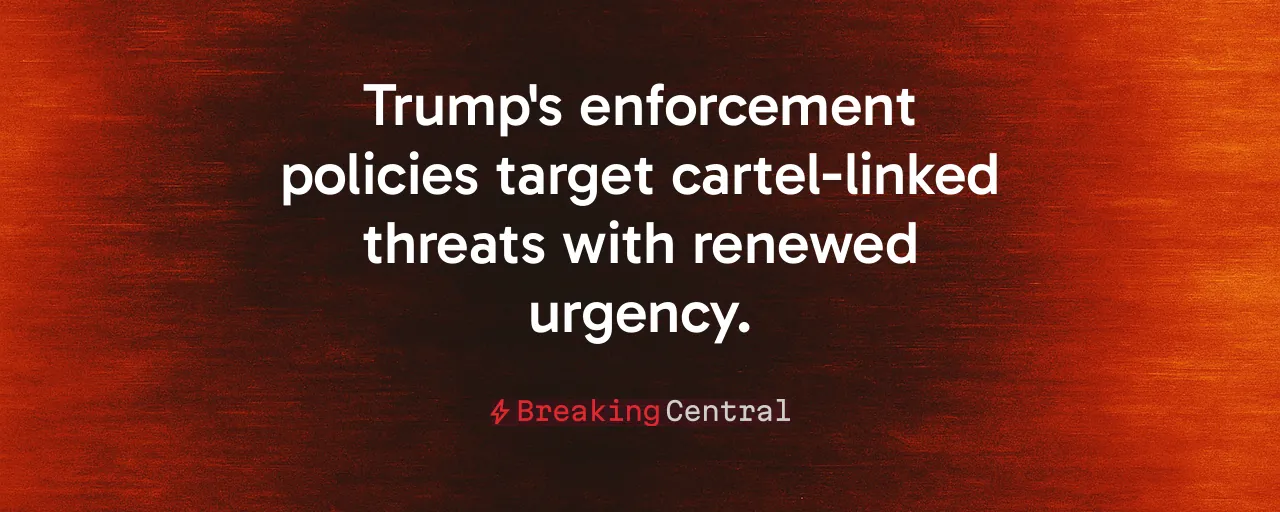A Cartel Threat Slips Through
On July 2, 2025, Immigration and Customs Enforcement agents arrested Julio César Chávez Jr., a Mexican boxer with ties to the Sinaloa Cartel, in Studio City, California. The arrest came after U.S. Citizenship and Immigration Services flagged him as a public safety threat in December 2024. Chávez, wanted in Mexico for weapons trafficking and organized crime, had overstayed a tourist visa and applied for residency through a marriage tainted by cartel connections. This high-profile case exposes a dangerous gap in immigration enforcement that demands immediate attention.
Chávez's ability to enter and remain in the United States, despite his criminal record and cartel affiliations, raises alarms about border security. The Sinaloa Cartel, designated a Foreign Terrorist Organization by President Trump, has fueled violence and fentanyl trafficking across the U.S.-Mexico border. Internal records from the prior administration showed Chávez was not a priority for removal, even after his threat level was clear. This oversight allowed a dangerous individual to roam freely, threatening American communities.
A System That Failed to Act
Chávez's case reveals a troubling pattern of leniency in immigration enforcement. In August 2023, he entered legally on a tourist visa, valid until February 2024. After overstaying, he applied for permanent residency in April 2024, leveraging his marriage to a U.S. citizen linked to the Sinaloa Cartel. Despite his 2012 DUI conviction, 2023 Mexican arrest warrant, and 2024 weapons charges in Los Angeles, the Biden administration's policies did not prioritize his detention or deportation.
By January 2025, Chávez was paroled back into the U.S. at the San Ysidro port of entry, despite being flagged as a threat. This decision stemmed from guidance that focused enforcement on recent border crossers or severe criminals, often leaving others like Chávez untouched. Data from ICE shows removals dropped significantly from 2021 to 2024 compared to prior years, reflecting a narrower focus that critics argue weakened public safety.
The failure to act swiftly on Chávez's case underscores a broader issue: selective enforcement erodes the rule of law. When individuals with active warrants and cartel ties can exploit legal loopholes, it sends a message of impunity. Communities bear the cost, facing heightened risks from fentanyl, firearms trafficking, and cartel-driven violence.
Restoring Order Through Decisive Action
President Trump's return to office in January 2025 marked a shift toward robust enforcement. His executive order expanded expedited removal nationwide, prioritizing nearly all undocumented migrants, including those with criminal ties. The arrest of Chávez, just months into this policy, signals a commitment to closing gaps that allowed threats to persist. The designation of the Sinaloa Cartel as a Foreign Terrorist Organization further equips authorities to target its operatives aggressively.
Historical context supports this approach. From 2017 to 2020, Trump's policies prioritized universal enforcement, leading to higher deportation rates of criminal aliens. Studies from the Migration Policy Institute confirm that clear priorities, backed by action, enhance public safety without increasing overall crime. By contrast, the Biden-era's discretionary approach often left local law enforcement to handle cases like Chávez's, straining resources and trust.
Protecting Communities, Preserving Justice
Strong enforcement detains individuals and safeguards communities. The Sinaloa Cartel has left a trail of devastation, from murdering U.S. Marine Corps veteran Nicholas Quets to fueling the fentanyl crisis. Allowing affiliates like Chávez to operate on U.S. soil risks further harm. Policies that mandate detention for those with violent or cartel-linked records, coupled with expanded cooperation between ICE and local police, can deter future threats.
Critics of broad enforcement warn of due-process concerns or strained community relations. Targeted action against verified threats, supported by intelligence sharing with allies like Mexico, balances justice with security. Chávez's active warrant in Mexico shows the value of cross-border collaboration to ensure prosecution follows deportation.
A Clear Path to Security
The Chávez case is a wake-up call. Lax enforcement and inconsistent priorities have allowed dangerous individuals to exploit the system, putting American lives at risk. Restoring universal enforcement, as seen in Trump's recent policies, sends a clear message: no one, not even a famous athlete, is above the law. Swift deportations of cartel affiliates protect communities and deter others from crossing illegally.
Transparency is key to sustaining public trust. Regular reporting on enforcement outcomes, as proposed by bipartisan task forces, can clarify how priorities are set and met. Investing in technology to prevent data errors, like those that misclassified Chávez, ensures resources target genuine threats. These steps strengthen the rule of law while addressing community concerns.
Ultimately, border security is about protecting the nation's future. By prioritizing enforcement, collaborating internationally, and maintaining clear standards, the U.S. can reclaim control of its borders. The arrest of Chávez is a start, but only consistent action will dismantle the cartel threat and restore safety for all Americans.
